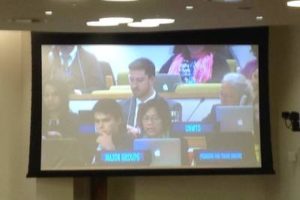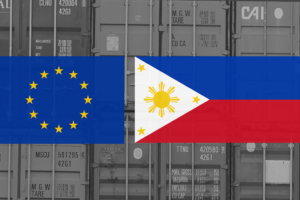In the webinar “Blended Finance: The privatisation of international aid?” organised by the Blended Finance Project last March 31 (see a short clip above; watch the full recorded webinar here), IBON International Executive Director Jennifer del Rosario-Malonzo raised concerns that blended finance furthers the corporate capture of development and undermines people’s rights and sovereignty.
Blended finance is packaged as the “strategic use of development finance” to “mobilise” resources for sustainable development in developing countries. It intends to encourage the big private sector to make investments towards sustainable development by using public funds, including international aid or Official Development Assistance (ODA) flows, to subsidise private investments in development projects and guarantee financial returns or profits.
The incompatibility of private interests to people’s needs and welfare was emphasised in the online discussion. Corporations and private investors claim concern over structural inequalities and prospects for sustainable development, but they are not willing to accept lower investment returns for development outcomes. Hence, blended finance promotes private investment in lucrative ventures such as public infrastructure, including health and other social services, which, in turn, blocks people’s access to these services and exacerbates inequalities.
Working peoples are experiencing the worst consequences of the privatisation of social services today, amid the pandemic. Mega-infrastructure projects that use blended finance contribute to plunder of natural resources especially in the global South, development aggression and the violation of the rights of Indigenous Peoples and farmers.
Resources from the private sector that blended finance promises to mobilise have yet to materialise. In the first place, even the 2020 and 2021 Financing for Sustainable Development Reports (FSDR) admit that the development impacts of blended finance projects are “largely unknown” and that such deals focus on “bankability”—that is, the prospects for profit—instead of development impacts.
“Blended finance and other forms of privatisation have made development matters into purely financing gap problems,” Malonzo said in the discussion. She asserted that development is not merely a matter of finance, or the lack thereof, but entails political questions that should primarily consider “people’s rights, their capacity and spaces to participate in decision-making and to substantially shape development processes.” She said that the current multiple crises triggered by the pandemic have already laid bare the failure of an economic system and development policies that prioritise corporate interests over the people and planet, and that, for the global South, there is a need to move away from dependence on foreign financing and investments—which exacerbate extractivism and land grabbing—towards prioritising their own strategic industrial policy and rural development.
Moreover, she said that ODA flows should not be diverted from its mandate to address poverty and inequalities to serve self-interested foreign policy objectives. Even the 2021 FSDR advises minimising the use of ODA in blended finance, and only in line with national priorities – which somewhat moderates the long-running endorsement of donor states at the Development Assistance Committee of the Organisation for Economic Cooperation and Development (OECD-DAC) and by other actors. She reiterated the need for donor countries to uphold their historical commitments as a minimum and to even to step up to address people’s urgent needs amid the pandemic. #



